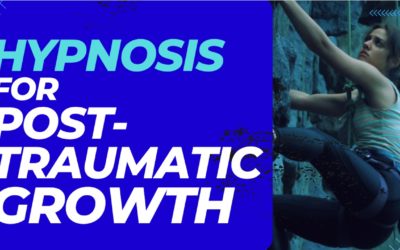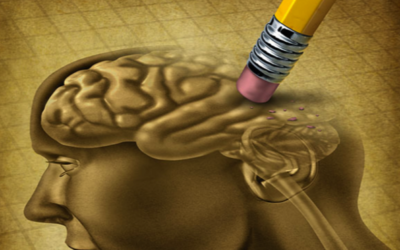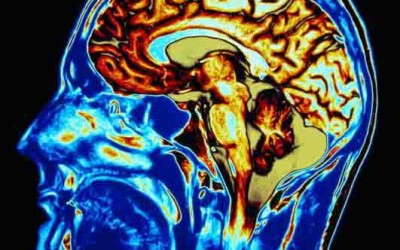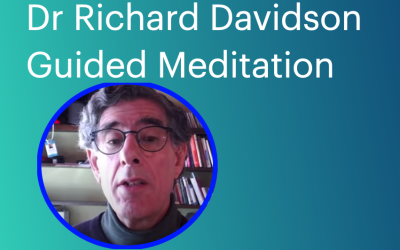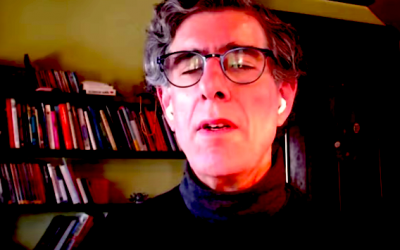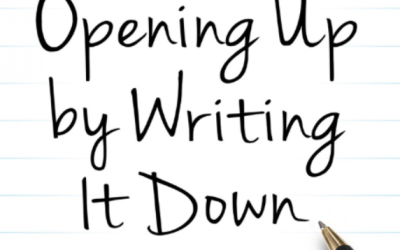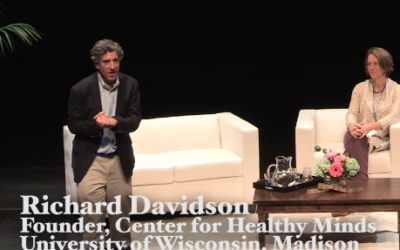Adversity happens to everyone. Some experience loss from the death of a loved one, a breakup, war, disease, trauma, job loss, betrayals. Some people have these moments become life changing in a way that results in despair, depression and suicide. Others, those with rockstar resilience bounce back better than ever. That which does not kill them, makes them stronger.
Drs. Steven Southwick and Dennis Charney have been studying the effects of trauma on resilience for nearly 20 years.
They have questioned why some survivors can overcome extreme adversity and go on to have purposeful lives and posttraumatic growth, while others don’t.
While gathering information for their book Resilience: The Science of Mastering Life’s Greatest Challenges, they worked with people who have endured, survived, and thrived in spite of extreme stress, such as those in the US Army Special Forces and prisoners of war.
1. Optimistic, but balanced with realism.
2. Face rather than ignore fears.
3. Strong sense of right and wrong.
4. Participate in a spiritual practice or group with strong beliefs.
5. Have a social support system to give and receive from others.
6. Have resilient role models who they emulate.
7. Make physical fitness a priority.
8. Keep their minds fit by engaging in lifelong learning.
9. Stay mentally flexible with a good sense of humour.
10. They have a calling, mission, or purpose in life.

You don't need a crises to be the catalyst to further develop your personal growth and resilience. We can adopt some of these traits before adversity occurs so that which doesn't kill us, makes us stronger!
27 Ideas for Your Vision Board
What is a Vision...
David Goggins’ Mindset: 10 Psychological Techniques for Pushing Oneself Beyond Limits
As a motivational speaker, his authenticity and the “Accountability Mirror” concept have inspired millions to take control of their lives. In essence, David Goggins’ mindset teaches us that with unwavering determination, we can shatter our perceived limits and achieve the extraordinary.
How a Breakup Can Effect Mental Health and How Hypnosis Can Help
The breakup of a romantic relationship can be seen as an emotionally upsetting event that can lead to multiple symptoms related to sadness, grief and depression and can also result in an increased risk of developing a depressive episode or takotsubo cardiomyopathy (broken heart syndrome) which is a type of heart attack by emotional duress such as a sudden illness, the loss of a loved one, a serious accident, or a natural disaster.
Hypnosis for Resilience and Post Traumatic Growth
Welcome to this...
Memory Reconsolidation to Reprogram Emotional Memories
The research suggests that targeting reconsolidation as an update mechanism can provide a safe and easily implemented way to prevent the return of fear. Specifically, the research proposes that incorporating neutral or more positive information during the retrieval of an old fear memory may be possible to permanently modify the fearful properties of this memory. This approach has significant implications for the treatment of anxiety disorders, which rely heavily on extinction which fails multiple ways e.g. reinstatement. By using a more natural intervention that captures the adaptive purpose of reconsolidation, it may be possible to develop new therapies that are more effective and resilient in treating anxiety disorders.
Steps for Activating Memory Reconsolidation
This post is from...
50 Ways To Kill Brain Cells
If you wanted to repair brain cells, one good start is to know which activities and substances can damage brain cells. Although the brain can repair and rewire itself, you can help restore some of it’s structure and functioning by not doing these methods known to cause damage to brains and in some instances, neurological disorders.
How to Remove a Fear by Rewriting Emotional Memories
The technique is notable for its lack of discomfort to the patient, the possibility of being executed as a content free intervention, its speed of operation and its long term, if largely anecdotal, efficacy. Specific diagnostics for extinction and reconsolidative mechanisms and suggestions for future research are provided.
Why Teen Depression Rates are Rising Faster for Girls than Boys
Why might girls be more prone to unhappiness when using social media?
Popularity and positive social interactions tend to have a more pronounced effect on teen girls’ happiness than boys’ happiness. Social media can be both a cold arbiter of popularity and a platform for bullying, shaming and disputes.
How Do I Stop Being Deeply Depressed Over a Breakup with My Ex?
Since the breakup you’ve developed a skill that you don’t want. And this is not your fault, its your brain. You’ve trained yourself to develop the neural circuitry that easily allows you to take that habitual route to crying and feelings of guilt, anger, sadness shame et al with greater ease. And the more this is done, the more it becomes ingrained as a default response associated to thoughts of the ex. If I throw you a ball, you’ll automatically move to catch it. If you think of your ex, you automatically move to sadness, crying, doom and gloom. But you don’t have to play catch and you don’t have to react with negative states of being. You do have a choice.
Hypnosis Career: How a Teacher Changed Work and Improved Lives
“As a former stressed teacher turned clinical hypnotherapist, I wanted to share some simple strategies to manage fear and reduce feelings of anxiety.
It’s something I suffered from prior to practically reframing my mindset for long-term change.”
Why Forgetting May Make Your Mind More Efficient
If forgetting is the key to how the brain successfully processes the massive data input it encounters each day — as research accumulated so far suggests — then flaws in the forgetting process could plausibly contribute to brain disorders, Davis and Zhong note. Deficits in the ability to forget may be involved in autism spectrum disorders, for instance. Certainly the powerful and debilitating memories of post-traumatic stress disorder reflect an inability to forget disturbing experiences.
How to Change Traumatic Memories
A one shot learning...
Can Meditation and Yoga Reverse DNA and Increase Health Benefits?
Mind-body interventions (MBIs) such as meditation, yoga and Tai Chi don’t simply relax us; they can ‘reverse’ the molecular reactions in our DNA which cause ill-health and depression.
Best 7 Anti-Anxiety Meditations
With all the uncertainty with the changing of presidents, laws, and increasing impacts of the coronavirus, it’s natural for our bodies to occasionally go into flight, fight or freeze mode and this can result in having our anxiety levels cranked up, but it doesn’t always have to be this way. Anxiety can be reduced and it can be done with meditation, not medication.
Dr. Richard Davidson Guided Self Meditation – and Mental Well Being Toolkit
Davidson is best known for his groundbreaking work studying emotion and the brain. He is a highly sought after expert and speaker, leading conversations on well-being on international stages such as the World Economic Forum, where he serves on the Global Council on Mental Health. Time Magazine named Davidson one of “The 100 Most Influential People in the World” in 2006.
How to Start Rewiring Your Own Brain to Become Resilient
Challenges to our need for satisfaction are frequently experienced as frustration, disappointment, drivenness, addiction, blahness, or boredom. Feeling thankful, awestruck, or already contented are well-matched to these issues. Challenges to connection can be experienced as loneliness, resentment, or inadequacy—and feeling either caring or cared about is a wonderful relief, since love is love whether it is flowing in or out.
6 Minute Meditation by Richard Davidson
Richie Davidson has done a short meditation online that you might find useful. The purpose of this meditation is to give beginners a way to ease anxiety and reduce stress, especially during the pandemic, for coping with isolation or physical distancing.
What are the Steps for Memory Reconsolidation?
Memory reconsolidation is the process by which a previously consolidated memory is destabilized and then restabilized after being retrieved from long-term storage. This process is thought to occur when a memory is reactivated and then modified in some way.
There are several steps involved in the process of memory reconsolidation:
What is the Difference between Memory Reconsolidation and Extinction?
Memory reconsolidation and extinction are two processes that involve the modification of previously consolidated memories. However, they differ in the way that the memories are modified and the resulting changes to the memory.
Radical Remission: Surviving Cancer Against All Odds Book Review
Dr Kelly Turner defines it as any cancer remission that is statistically unexpected, and those statistics vary depending on the cancer type, stage, and medical treatment received.
To be more specific, a radical remission occurs whenever:
• a person’s cancer goes away without using any conventional medicine; or
• a cancer patient tries conventional medicine, but the cancer does not go into remission, so he or she switches to alternative methods of healing, which do lead to a remission; or
• a cancer patient uses conventional medicine and alternative healing methods at the same time in order to outlive a statistically dire prognosis (i.e., any cancer with a less than 25 percent chance of five-year survival
Memory Manipulation for PTSD, Addiction and OCD with Neuroscientist Karim Nader
One of the neuroscientists in the landmark study about memory reconsolidation is Karim Nader, an Associate Professor at McGill University in Montreal who also happened to have won an award for his work on memory research. He gave an interview about memory manipulation, the theory of reconsolidation, and describes how it might be used to treat anxiety disorders and post traumatic stress disorder, drug addiction, obsessive compulsive disorder and more.
To Boost Your Self-Esteem, Write About Chapters of Your Life
It’s been shown that people who tell more positive stories, including referring to more instances of personal redemption, tend to enjoy higher self-esteem and greater ‘self-concept clarity’ (the confidence and lucidity in how you see yourself).
How to Overcome Dentophobia or Fear of Dentists Even with Bad Teeth and Dental Anxiety
A portion of people...
Here’s Why Memories Come Flooding Back When You Visit Places from Your Past
Context-dependent memory was confirmed by an ingenious 1975 experiment in which divers memorised lists of words and were then tested both on land and underwater. On land, their recall was best for the words they had learned on land, whereas underwater they were better at remembering the word lists they learned underwater.
How Come Addictions are Difficult to Overcome?
Addictions are a tough...
Is Expressive Writing a Beneficial Form of Self Therapy?
Dr James Pennebaker and Dr Joshua Smyth share their insights on how expressive writing eases emotional pain.
After Researching 71,173 People, Here are Some Benefits of Optimism
When individuals were compared based on their initial levels of optimism, the researchers found that the most optimistic men and women demonstrated, on average, an 11 to 15 percent longer lifespan, and had 50-70 percent greater odds of reaching 85 years old compared to the least optimistic groups.
50 Ways To Kill Brain Cells (part two)
18) Post traumatic...
Harvard Neuroscientist ‘Well Being is a Skill’
“Well-being is fundamentally no different than learning to play the cello.” This is the conclusion that neuroscientist Richard Davidson at the Center for Healthy Minds at the University of Wisconsin-Madison and his colleagues have declared.
The Surprising Role of Childhood Trauma in Athletic Success
British tennis player Andy Murray survived the 1996 massacre at Dunblane primary school in Scotland by hiding under a desk, aged eight. American gymnast Simone Biles spent her early childhood in the foster care system. Indeed, research suggests that many of the world’s greatest athletes may have similar stories of childhood adversity.
Can a Breakup Lead to Depression?
It is not the...
Are Memories Stored in the Brain?
Every sensory experience triggers changes in the molecules of your neurons, reshaping the way they connect to one another. That means your brain is literally made of memories, and memories constantly remake your brain.




